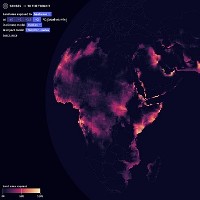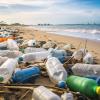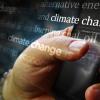
To make climate scenarios work for decision makers, an international team of researchers have developed a comprehensive interactive online platform.
 © © SENSES Earth
© © SENSES Earth
Extreme events at different warming levels
The SENSES platform is the first of its kind to provide the tools to use scenarios, ranging from climate impacts to mitigation and energy options to a broader public beyond science. The scenarios can help policymakers and businesses, finance actors and civil society alike to assess the threat of global warming and ways to limit it.
The SENSES project (climate change ScENario ServicES) is part of the official European Research Area for Climate Services, supported by national ministries and the EU. It is a collaborative project of the Potsdam Institute for Climate Impact Research (PIK), Fachhochschule Potsdam, IIASA, Wageningen University, and Stockholm Environment Institute.
“Climate scenarios are powerful tools that allow us to explore possible climate futures and how they are shaped by our collective actions, which is why we want to enable all kinds of decision makers to actually make use of them,” says Elmar Kriegler from PIK who leads the SENSES consortium that collectively developed the online platform. “Science has been developing and using climate scenarios for many years, based on computer simulations, yet they’re admittedly a rather complicated matter and results are scattered in all too many scientific publications. We now want to offer a new way of access to those scenarios so people can see for themselves what is at stake with climate stabilization, and can base their decisions on the best information available.”
For instance, a finance expert who wants to assess the potential of stranded assets in the fossil fuel industry would be interested to see how rapidly global greenhouse gas emissions must be reduced to keep warming below the internationally agreed limit of 1.5-2°C. The user can check out the emissions gap learning module on the SENSES platform, which gives basic information as well as graphics and links to literature.
To further explore the details, the user can go to what the researchers call a Guided Exploration Module (GEM).
“The GEMs provide a soft landing in the data and allow users to develop key insights from analyzing the scenarios themselves,” explains project coordinator Cornelia Auer, also from PIK. “They can understand robust trends, like a coal-exit or the decarbonization of electricity, but also variations in the scenarios like the influence of technologies such as carbon dioxide removal.”
For those interested in going even further, there is a Scenario Explorer. Users can browse through a large set of scenarios that they filter according to their preferences and assumptions. Those who think that removing carbon from the atmosphere in the future is unlikely to work can filter scenarios with a lower amount of bioenergy with carbon capture and storage (BECCS), whereas those who want low final energy use and still a well below 2°C scenario can filter for these characteristics.
“The SENSES project was a new experience for us and has lifted communication of insights from climate change scenario research and providing related services to a new level by putting it on center stage. The consortium combines a wide range of expertise from climate change research to participatory processes and design, which was a key ingredient for the development of the SENSES toolkit. At IIASA we focused on providing scientific insights on climate change mitigation and data access via the Scenario Explorer infrastructure in a way that allows easy reuse for creating additional communication tools in the future,” says Volker Krey, IIASA Energy Program Deputy Director.
While the platform is designed for use by decision makers and experts, it is open for everyone. According to the partners, finding solutions to tackle the climate challenge is something we can only do together. The process needs to include many different voices and perspectives and enabling them to use climate scenarios from science is one important element. It is a new form of climate service – climate change scenario services.
Adapted from a press release prepared by PIK.
Further information:
Weblink to SENSES platform: https://www.climatescenarios.org/
Weblink to SENSES project website: http://senses-project.org/
News

28 June 2024
Drowning in waste: pollution hotspots in aquatic environments

27 June 2024
What can social media tell us about public views on climate change?

21 June 2024

